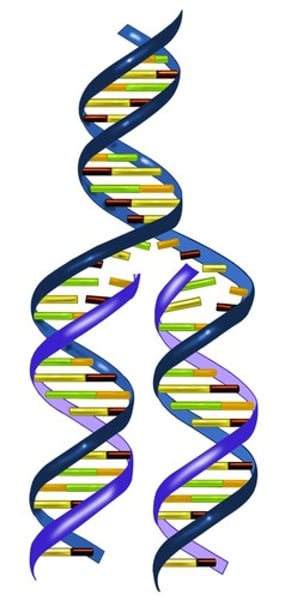Morality/Social Justice FINAL EXAM
1/85
There's no tags or description
Looks like no tags are added yet.
Name | Mastery | Learn | Test | Matching | Spaced | Call with Kai |
|---|
No analytics yet
Send a link to your students to track their progress
86 Terms
Human Person
A rational being, composed of body and soul, designed for happiness
Concupiscence
Our inclination towards sin
Inherent
Inborn or inherited; something that does not need to be earned or acquired.

Original Sin
The fallen state of human nature, which affects every person and from which Christ came to redeem the world
Common Good
The sum total of social conditions that allow people, either as a group or as individuals, to reach their fulfillment more fully and more easily
Morality
the standards by which we judge actions to be good or evil
Objective Morality
The type of morality that claims that our actions are good or evil independently of what we think about them? (That there are set rules/standards)

Virtues
At the heart of the moral life; healthy, good habits that help us do good and empower us to become the person God intended us to be (the best-version-of-ourselves)
Cardinal Virtues
virtues are the "hinge" virtues (meaning that all the other virtues depend on them)
Culture
The learned behavior of a group of people, generally considered to be the tradition of that people and transmitted from generation to generation; The Personality of a society
Moral Relativism
Claims that the moral value of our actions depends on the situation and one's opinion and feelings
Dignity
The inherent and unchanging value of all persons as a direct result of their being created by God in His image and likeness
Actions
Our thoughts, words, and deeds
Relativism
the doctrine that knowledge, truth, and morality exist in relation to culture, society, or historical context, and are not absolute
culpability
responsibility
Discernment
a decision-making process that honors the place of God's will in our lives
Intrinsic Evil
those actions that are opposed to the will of God or proper human fulfillment; they are morally evil, independently of any circumstance or situation- acts that one can never do

Magisterium
the official teaching body/authority of the Catholic Church
Prayer
"A living relationship with God, Jesus and the Holy Spirit" (Catechism of the Catholic Church, 2565
Freedom
makes us responsible for our choices and actions, whether they are good or bad
Common notion of freedom
Doing whatever we want, whenever we want
Determinism
Denies that human beings have the power to choose
License
Choice without restraint; throwing off all responsibility
Inalienable Rights
Rights that can never be taken away
Faith
The Theological virtue by which one believes in all that God has said and revealed to man and all that the Church proposes for belief
Incommunicable
The human person is a unique and unrepeatable entity (existence) aka that there can never be another YOU
2 Basic Parts of the 5th Commandment
Respect of Self and Respect of Others
Authentic Love
Wanting what is best for the other person
Chastity
The virtue helps us order and use our sexuality for good
Humanae Vitae
Pope Paul VI's 1968 encyclical on human life. It is most famous for its clear and definitive teaching on why contraception is immoral and sinful, explaining that it separates the sexual act from one of its intrinsic purposes: procreation.
Charity
The response to the commandment of Jesus to love our neighbors as ourselves
Common good
"the sum total of social conditions which allow people, either as groups or as individuals, to reach their full potential more easily
Life and Dignity of the Human Person
The theme of Catholic Social Teaching means that a person (from womb to tomb) is precious & worthy of respect and protection
Justice
the cardinal or moral virtue that consists in the constant and firm will to give God and neighbor their due; it is also the actions that flow from that virtue
Catholic Justice
Giving each person what is rightfully due to them
Social Encyclicals
Letters written by Popes that are guides for building a just society
Solidarity
The Christian virtue of social charity and friendship.
Subsidiarity
The principle of Catholic social teaching that holds that a higher unit of society should not do what a lower unit can do as well (or better).
3 Sources to determine Right from Wrong
Human reason, human experience, divine revelation
Character
Who we really are and who we are becoming through our choices and actions
Internal Act
an act that is confined to the heart and mind (the will and intellect)
External Act
exterior; an act that reaches beyond the heart and mind;
Object
The action itself; the moral content of an action that suggests whether the action is directed toward the true good
Intention
the aim or objective of a course of action
Ignorance
not knowing something
Inadvertence
not noticing something
Duress
being put under force
Habit
acting in an almost involuntary way because of having done the same thing repeatedly
Inordinate Attachment
Desire for something that goes beyond reason
Formal Cooperation in Evil
deliberate cooperation in an evil action or practice. Formal cooperation is willing cooperation in an evil act
Implicit Cooperation in evil
does not involve a direct participation in the evil deed, but rather identifies with the sinful actions by willfully facilitating them. (telling a friend how to shoplift, taking someone to an abortion clinic)
Material Cooperation in evil.
an action that has a role to play in the accomplishment of the evil deed but lacks the deliberate consent to that same cooperative action
Freedom:
The power, rooted in reason and will, to act or not to act, to do this or that, and so to perform deliberate actions on one's own responsibility (CCC 1731).
Grace:
The free and undeserved help that God gives you to respond to his supernatural call to become his adoptive sons and daughters, partakers of the divine nature and of eternal life. Grace is a participation in the intimacy of God's own Trinitarian life, offered from the Father, through the Son, and in the Holy Spirit.
Justification:
The grace of the Holy Spirit to justify you—that is, to cleanse you from your sins and to communicate to you the righteousness of God through faith in Jesus Christ and through Baptism.
Canon Law:
The official body of rules (canons) that provides for good order in the Catholic Church.
Authentic Freedom
the ability and power to use one's will to choose what is objectively good and to act accordingly
License
choice without restraint
Natural Law
the reasoned participation of humans in God's eternal law that reveals what God intends us to do and to avoid according to His wise and loving plan
Complementarity
refers to the unique - and fruitful - relationship between men and women.
Sexual Urge
The tendency to seek the opposite sex, orientation toward the physical and sexual values of the human person
Pornography
an explicit description or display of sexual organs or activity, intended to stimulate erotic rather than aesthetic or emotional feelings; pictures or stories created with the direct intention of arousing lust in the viewer or reader
Masturbation
the deliberate stimulation of the genital organs in order to derive sexual pleasure;
Contraception
every action before, during, or after sexual intercourse that deliberately attempts to impede its procreative potential. (includes sterilization, condoms, and other barrier methods such as spermicides, pulling out, the pill, and all other such methods)
Humane Vitae
Pope Paul VI's 1968 encyclical on human life. It is most famous for its clear and definitive teaching on why contraception is immoral and sinful, explaining that it separates the sexual act from one of its intrinsic purposes: procreation.
Authentic Love
to will the good of another person. JPII says that love involves a sincere gift of oneself to others.
Twofold purpose of sex
Unitive and Procreative
Indissolubility
The quality of a sacramental marriage that means the union cannot be broken except by the death of a spouse
Exclusivity
The quality of a sacramental marriage meaning that marriage is between one man and one woman
Chastity
the virtue dedicated towards the positive integration of our sexuality; the virtue that directs all our sexual desires, emotions, attractions toward the good i.e. the truth of love
Totality
The main Characteristic of Marriage states that the spouses give of themselves completely to one another, both physically and spiritually
Sanctity of Life
The value of a life is absolute and cannot be measured; every life has equal value
Abortion
The destruction of a child after conception but before birth; direct cooperation in it is forbidden by the 5th commandment
Commutative Justice -
the type of justice that governs exchanges between individuals and private groups
Distributive Justice
the type of justice that governs what the greater community owes individuals based on their contributions and needs
Legal Justice
the type of justice that governs what individuals owe their country and society
Social justice
the application of the virtue of justice. The defense of human dignity by ensuring that social structures and institutions on all levels - including political, cultural and economic - provide for essential humans needs and protect basic human rights.
Social encyclical
a letter from the Pope to the Church on issues related to human rights, social justice and peace.
Charity
The virtue by which people love God above all things for his own sake, and their neighbor as themselves for the love of God
Social Sin
The effect that every personal sin has on others; sin that violates the freedom, dignity, or rights of others; the collective effect of such sins, which can affect society and its institutions to create structures of sin.
Personal Sin
Sin that results from deliberation and an act of the will with knowledge. A failure to love God above everything and our neighbor as ourselves
Catholic Social Teaching
The Church's social doctrine, which is articulated as she interprets events in the course of history, with the assistance of the Holy Spirit, in the light of the truth of Revelation.
7 Themes of Catholic Social Teaching
1. Life and Dignity of the Human Person 2. Call to Family, Community, and Participation 3. Rights and Responsibilities 4. Option for the Poor and Vulnerable 5. The Dignity of Work and the Rights of Workers 6. Solidarity 7. Care for God's Creation
Stewardship
The proper use of the gifts God has given us, in particular, the care for creation that will allow the earth and its resources to flourish and last for future generations.
Seven Social Sins
Wealth without Work
Pleasure without Conscience
Science without Humanity
Knowledge without Character
Politics without Principle
Commerce without Morality
Worship without Sacrifice
Rerum Novarum
The First Social Justice Encyclical: 1891 - Pope Leo XII's call to the Catholic Church to work to alleviate social problems such as poverty.